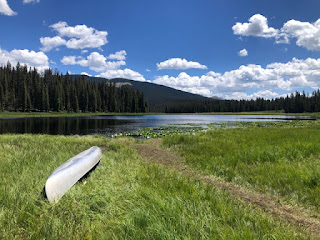"Attention is the rarest and purest form of generosity. It is given to very few minds to notice that things and beings exist. Since my childhood I have not wanted anything else but to receive the complete revelation of this before dying." - Simone Weil
I feel nostalgia for my attention. For the last generation that grew up without internet in their childhood. A childhood in which I could truly leave school when I left school. I could come home to be a girl feeding her chickens and taking her rabbit for a leashed walk in the backyard.
I'm reading a beautifully printed edition of essays by Willa Cather. She titled the collection Not Under Forty (1936 Knopf) because she believed no one under 40 would be interested in these subjects. The essays are character sketches and impressions of fascinating people she meets visiting friends in France and Boston, in 1870 1905 1915 1922, in hotels and at farms and homes.She runs into the niece of Gustave Flaubert in a hotel lobby (somehow people used to move into hotels back then for extended stays) and spent evenings talking with this Frenchwoman in her 80's. When they weren't attending operas, the woman shared with Cather her memories of Turgeniev offering his edits of her personal translations of Faust. Imagine spending your time sharing memories with new friends and reading and translating for the fun of it!
People had time for each other. Reading Cather's essays, I feel I'm leap frogging back in time many generations following the thread of writer ancestries, writer influencers. It's a relay of time.
It's been a quiet week for me because I was sick with a gastroenteritis virus that hit me hard. I cancelled all my nightly networking events and classes. Less distractions, no coffee. I get a sense of Willa Cather in her essays, how she perceives and what stands out to her in her circle of the world. Even she has nostalgia for the quieter life before the war. WW1, for her. She writes, "Just how did this change come about, one wonders...Was it at the Marne? At Versailles, when a new geography was being made on paper?" (74)
In 1928, Virginia Woolf in A Room of One's Own wrote about a similar sensation of feeling a difference in the world after the war, that something was missing now in a gathering of people over food and literary topics of conversation. She wrote of a certain unconscious "hum" beneath the dialogue and conversations of people sharing ideas. That something was missing from the shine even of ideas that existed before the war, and shared now, they just didn't hum or shine as they used to, even if they were not any way changed from before. Listening at a dinner party, Woolf writes,
"Nothing was changed; nothing was different save only - here I listened with all my ears not entirely to what was being said, but to the murmur or current behind it. Yes, that was it - the change was there. Before the war at a luncheon party like this people would have said precisely the same things but they would have sounded differently, because in those days there were accompanied by a sort of humming noise, not articulate, but musical, exciting, which changed the value of the words themselves."(12)
Can it be that the change in experience of the world around them in those times was of the magnitude in their experience as the increase of noise and chaos experienced by so many of us today? We find ourselves desperate to shield ourselves from the overload of information coming at us from all directions, much of it crucial knowledge for living an ethical life. Much of it misconstrued and swiss-cheesed with cognitive biases.
I am trying to manage my intake of information so that I can live intellectually and creatively, finding a community of fellow revelers of words and discovery and science and wonder and magic in this world. Also in order to live with an ethics that prioritizes the well-being of all of the beings, living and inanimate, that depend on an interconnectedness for survival.
I am also nostalgic for a world where I used to live in which the accosting nature of the internet was not interrupting my absolute attention to presence in human nature, each time and place.












.jpg)




